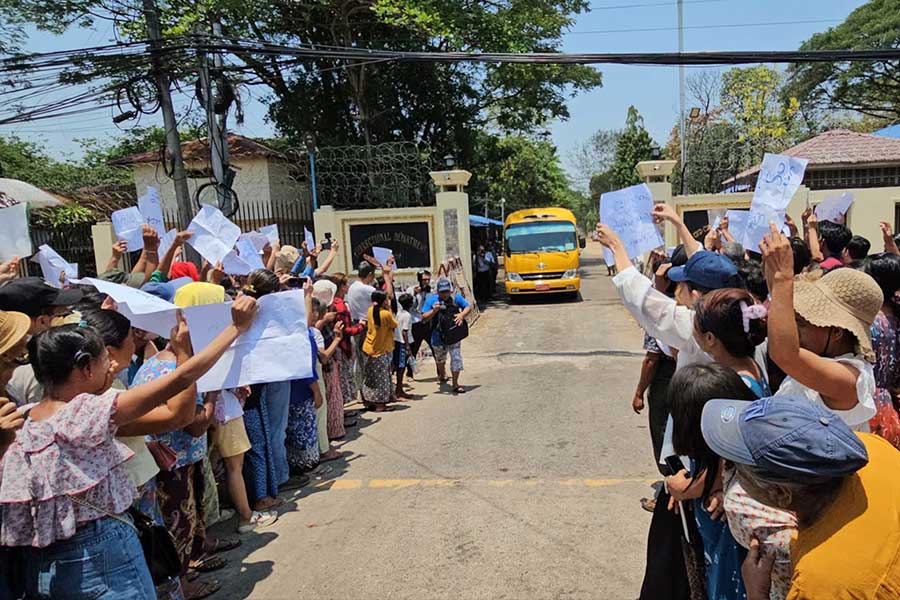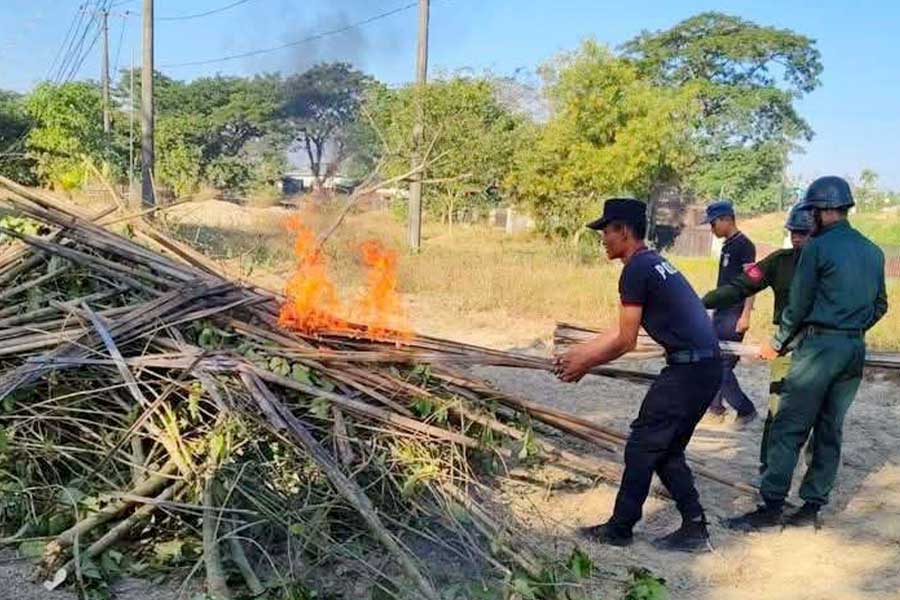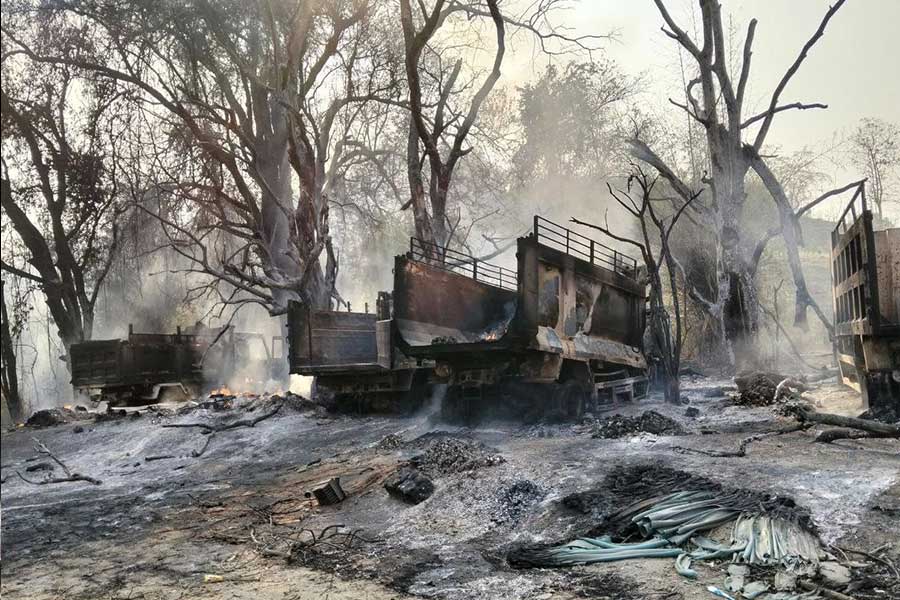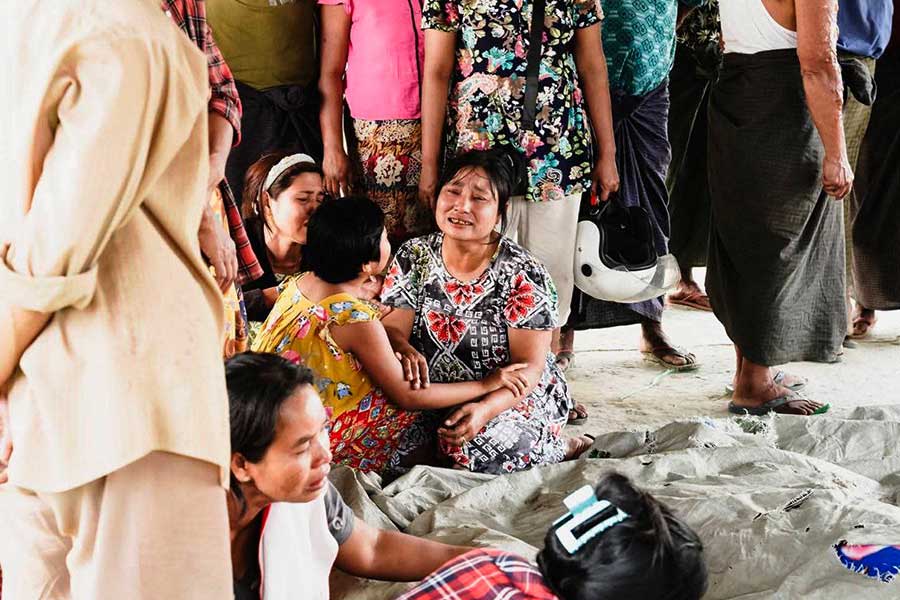- Weekly Highlights from Arakan (Feb 23 to March 1, 2026)
- Over 300 political prisoners freed from 10 prisons nationwide
- DMG Editorial: Between War and Opportunity - A New Border Reality for Bangladesh and Arakan
- Arakan Army sets five-year prison term for kratom cultivation in controlled areas
- Junta airstrikes kill over 25, including Arakanese merchants, in Mindon Twsp
Daingnet people to organise traditional floating flower festival
Daingnet also known as Thakkama people will organise their traditional floating flower festival at Shindaw Village in Ponnagyun Township from April 12-13.
06 Apr 2023
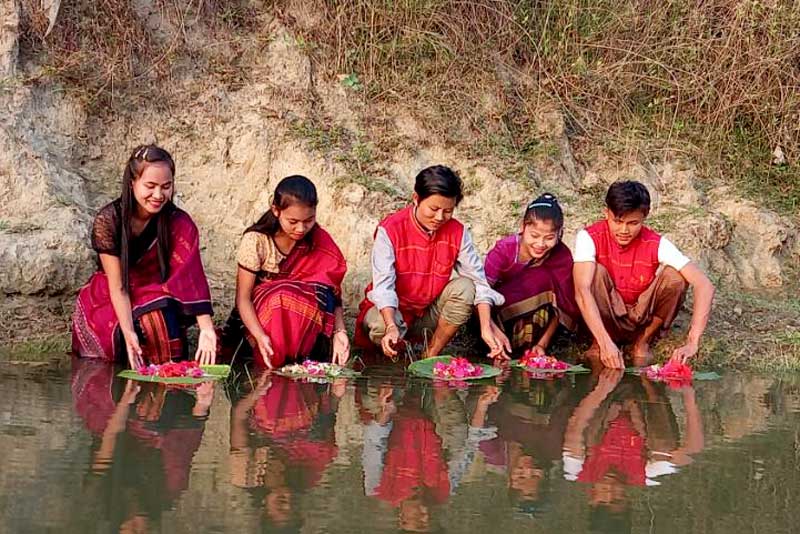
DMG Newsroom
6 April 2023, Ponnagyun
Daingnet also known as Thakkama people will organise their traditional floating flower festival at Shindaw Village in Ponnagyun Township from April 12-13.
Daingnet aka Thakkama culture and literature organisations will organise the festival, with the aim of reviving old customs and traditions.
Buddhist monk Ashin Jotipala, who is a member of the organising committee, said: “Our ancestors value water, and worship water deities by floating flowers in the water. We are organising this event to hand down the age-old concept that water is crucial for growing paddy and crops.”

Annually, the festival is held one day before the Thingyan water festival in April. Banana leaves are decorated with various kinds of flowers, and floated into water to worship water deities.
The first in the series of the festival was held in Minbya Township in 2012, and it has been held alternately in Ponnagyun, Kyauktaw, Mrauk-U and Buthidaung townships. Last year’s festival was held in Pyein Chaung Village in Buthidaung. This year’s festival is the 12th of its kind.
Civil society organisations representing Arakanese, Mro, Khami communities are also invited to the festival, which will feature talks on the history of Daingnet people, and traditional dance and music.
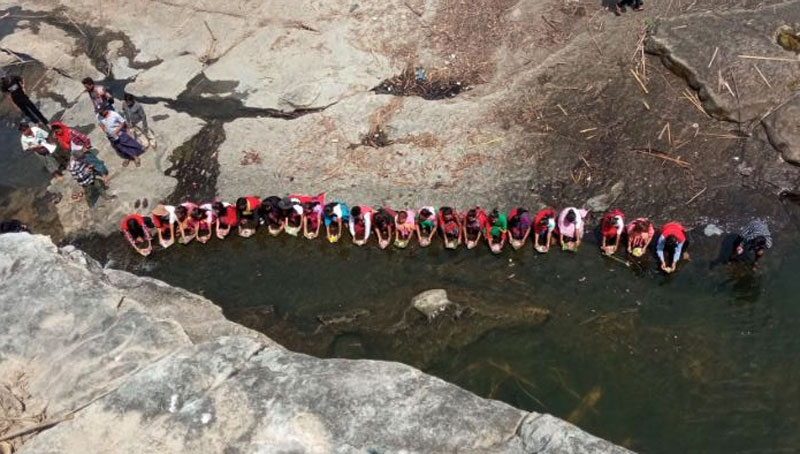
One of the organising committee members, Ko Maung Aung Thein, said: “We have also invited Arakanese tribes and civil society organisations in surrounding villages to liven up the festival as much as possible.”
Around 50,000 Daingnet aka Thakkama people are spread across Mrauk-U, Minbya, Kyauktaw, Ponnagyun, Buthidaung and Maungdaw townships. Large numbers of them also reside in Bangladesh’s Chittagong and India’s Mizoram.




